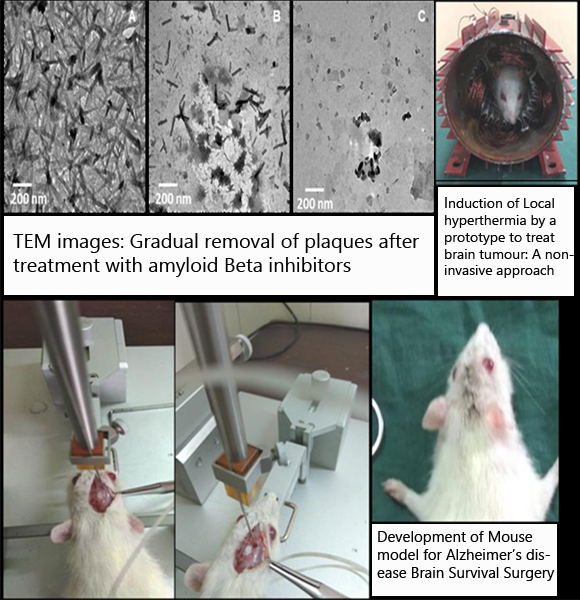


Alzheimer's is the most common cause of dementia. The symptoms include getting lost, asking repetitive questions, experiencing difficulty handling money and paying bills, having poor decision-making skills, frequently misplacing items and undergoing personality changes. Those with Alzheimer's also tend to take longer than before to complete normal daily tasks. As Alzheimer's progresses and becomes severe, people may lose the ability to communicate and recognize oneself or family members. Alzheimer’s disease is explained with several hypotheses namely Amyloid hypothesis which deals with the misfolded peptide Aβ1-42 and tauopathy which projects hyperphosphorylated tau proteins as the causative agent of the disease and the recent mitochondrial cascade hypothesis.
Current medications can only relieve some symptoms of the disease. These medications are acetylcholinesterase inhibitors (tacrine, rivastigmine, galantamine, and donepezil) and Memantine which is an NMDA receptor antagonist. One PEGylated block copolymer was synthesized and tested at our lab that inhibits the aggregation of the misfolded amyloid peptide of Alzheimer’s disease. An animal model was also developed to test the inhibitor by survival surgery. Next level clinical trial is under progress. Our recent finding was featured in the Journal of Molecular Neurobiology and reported in the “Knowhow” section of “The Telegraph” dated 12th August 2019.